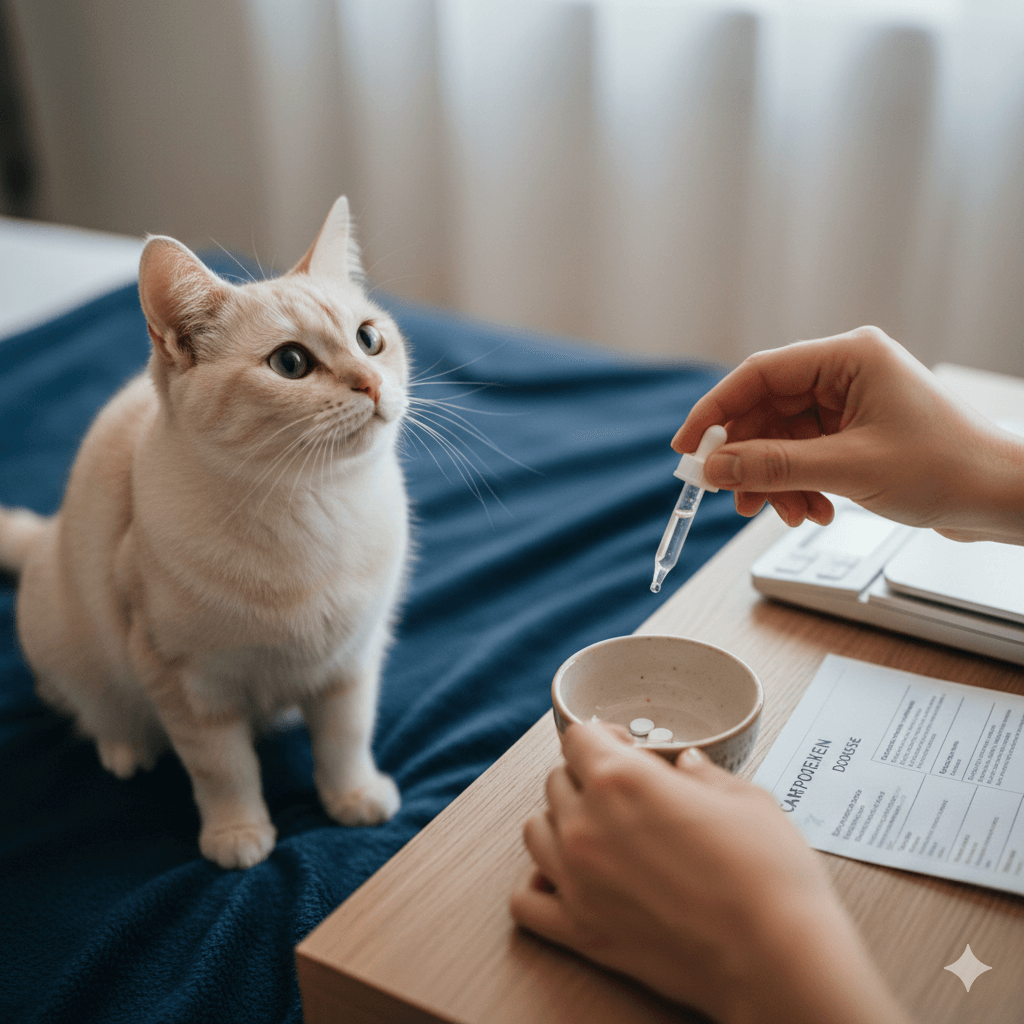What Is a Cat Behaviorist and Why Do You Need One?
Cats are fascinating creatures, but their behavior can sometimes leave even the most experienced pet owners scratching their heads. From sudden aggression to mysterious litter box issues, understanding your cat’s actions isn’t always straightforward. This is where a cat behaviorist comes in—a professional who specializes in decoding feline behavior and helping resolve challenging issues.
Whether you’re dealing with a misbehaving kitten or an anxious senior cat, a cat behaviorist can provide tailored solutions to improve your cat’s well-being and strengthen your bond. In this blog post, we’ll explore what a cat behaviorist does, how they can help, and why consulting one might be the best decision for you and your furry friend.
What Does a Cat Behaviorist Do?
A cat behaviorist is trained to observe, analyze, and address behavioral problems in cats. Their expertise spans a wide range of issues, from minor quirks to serious concerns. Here’s an overview of their primary responsibilities:
Identifying Behavioral Triggers:
They assess the environment, routines, and interactions to pinpoint what might be causing unwanted behaviors like scratching furniture or excessive meowing.Developing Customized Solutions:
Every cat is unique, so behaviorists create personalized plans that cater to your cat’s specific needs and personality.Educating Pet Owners:
A significant part of their role involves teaching owners how to better understand and communicate with their cats.Addressing Anxiety and Stress:
Cats often exhibit problem behaviors due to stress. Behaviorists help identify stressors and implement calming strategies.Improving Human-Cat Relationships:
By resolving conflicts and misunderstandings, they foster a stronger, more harmonious bond between cats and their humans.
With their specialized knowledge, cat behaviorists play a crucial role in ensuring both cats and their owners live happier, stress-free lives.
Common Cat Behavior Problems Addressed by Experts
Cat behaviorists frequently tackle a variety of issues that can disrupt household harmony. Understanding these problems helps you recognize when it’s time to seek professional help.
Litter Box Avoidance:
Refusing to use the litter box is a common issue often linked to medical conditions, cleanliness, or territorial disputes.Aggression Towards People or Pets:
Aggressive behavior may stem from fear, pain, or feeling threatened, requiring careful intervention.Destructive Scratching:
While natural, excessive scratching can damage furniture; behaviorists suggest alternative outlets like scratching posts.Excessive Vocalization:
Constant meowing or yowling may indicate hunger, loneliness, or underlying health problems.Separation Anxiety:
Some cats become distressed when left alone, leading to destructive behaviors or excessive grooming.
These challenges highlight the importance of addressing behavioral issues early to prevent escalation and ensure your cat’s happiness.
Check this guide 👉Tuxedo Cat Behavior: Best 7 Expert Tips!
Check this guide 👉Ragdoll Cat Behavior Problems: Best 7 Expert Tips!
Check this guide 👉Pregnant Cat Behavior: Best 7 Expert Tips!

Signs Your Cat Needs a Behaviorist | How a Behaviorist Can Help |
|---|---|
Frequent accidents outside the litter box | Identifies root causes and offers solutions |
Unexplained aggression or biting | Teaches techniques to reduce conflict |
Excessive scratching on furniture | Recommends deterrents and enrichment |
Loud nighttime vocalizations | Develops routines to minimize disruptions |
Signs of anxiety or depression | Implements calming strategies and training |
Steps to Take Before Consulting a Cat Behaviorist
If you’re considering hiring a cat behaviorist, there are several steps you can take beforehand to maximize the effectiveness of their visit.
Observe Your Cat’s Behavior:
Keep a detailed journal noting when, where, and how often problematic behaviors occur.Rule Out Medical Issues:
Schedule a vet checkup to ensure the behavior isn’t caused by illness or pain.Evaluate Your Environment:
Assess your home for potential stressors, such as loud noises, unfamiliar scents, or changes in routine.Adjust Basic Care Routines:
Make sure your cat’s diet, exercise, and enrichment needs are being met consistently.Research Local Behaviorists:
Look for certified professionals with experience in feline behavior to ensure quality care.
Taking these proactive steps prepares you for a productive consultation and sets the stage for successful outcomes.
Benefits of Hiring a Cat Behaviorist
Working with a cat behaviorist offers numerous advantages that extend beyond solving immediate problems. These benefits make the investment worthwhile for many pet owners.
Improved Quality of Life for Your Cat:
Addressing behavioral issues reduces stress and enhances your cat’s overall well-being.Strengthened Bond with Your Pet:
Resolving conflicts fosters trust and deepens your connection with your feline companion.Long-Term Solutions Over Quick Fixes:
Behaviorists focus on sustainable strategies rather than temporary fixes, preventing future problems.Expert Guidance Tailored to Your Situation:
Their advice is customized to your cat’s unique temperament and living environment.Peace of Mind for You:
Knowing you’ve addressed the issue professionally alleviates worry and frustration.
By investing in expert help, you’re prioritizing your cat’s mental and emotional health while creating a more peaceful home environment.
Tips for Choosing the Right Cat Behaviorist
Finding the right professional ensures effective results and peace of mind. Consider these tips when selecting a cat behaviorist:
Check Certifications:
Ensure they hold credentials from recognized animal behavior organizations.Read Reviews and Testimonials:
Past clients’ experiences can give insight into their approach and success rate.Ask About Their Methods:
Confirm they use positive reinforcement techniques rather than punishment-based strategies.Discuss Fees Upfront:
Understand costs and what’s included in each session to avoid surprises later.Schedule an Initial Consultation:
Many behaviorists offer introductory meetings to discuss your concerns and assess compatibility.
Choosing wisely sets the foundation for a successful partnership.
Preventing Future Behavioral Issues
Once you’ve resolved existing problems, taking preventive measures ensures long-term harmony. Here’s how to maintain a balanced household:
Provide Enrichment Activities:
Toys, climbing structures, and interactive games keep your cat mentally stimulated and engaged.Maintain Consistent Routines:
Cats thrive on predictability; stick to regular feeding, play, and sleep schedules.Monitor Health Regularly:
Routine vet visits help catch potential issues before they manifest as behavioral changes.Create Safe Spaces:
Designate quiet areas where your cat can retreat when feeling overwhelmed or stressed.Practice Positive Reinforcement:
Reward good behavior consistently to reinforce desired actions and discourage bad habits.
Proactive prevention minimizes the likelihood of recurring issues.
Understanding the Importance of Early Intervention
Addressing behavioral problems early can save you time, money, and heartache down the line. Here’s why acting promptly matters:
Prevents Escalation:
Small issues can grow into major problems if ignored, making them harder to resolve later.Protects Your Relationship:
Timely intervention prevents frustration and resentment from building between you and your cat.Reduces Stress for Your Cat:
Early action minimizes discomfort and anxiety caused by unresolved behavioral challenges.Avoids Costly Repairs:
Fixing damaged furniture or replacing ruined items adds up over time.Enhances Training Success:
Younger cats or newly adopted pets adapt more easily to behavioral adjustments than older animals.
Swift intervention leads to quicker, more effective solutions and a happier home environment.
Frequently Asked Questions About Cat Behaviorists
What qualifications should I look for in a cat behaviorist?
Seek someone certified by reputable organizations and experienced specifically in feline behavior.
How much does a cat behaviorist cost?
Costs vary depending on location and session length, typically ranging from $100 to $300 per consultation.
Can a cat behaviorist help with multiple cats?
Yes, they specialize in multi-cat households and can address issues like territorial disputes or bullying.
Will my cat need medication?
Medication is rarely the first step; behavior modification is usually prioritized unless prescribed by a vet.
How long does it take to see results?
Progress varies but consistent implementation of recommended strategies often shows improvement within weeks.
Investing in Your Cat’s Happiness with a Behaviorist
Understanding and addressing your cat’s behavior is key to fostering a loving, stress-free relationship. A cat behaviorist brings invaluable expertise to the table, helping decode complex behaviors and providing practical solutions. Whether you’re dealing with litter box troubles, aggressive tendencies, or general confusion about your cat’s actions, a behaviorist can guide you toward lasting resolutions. Remember, seeking professional help isn’t a sign of failure—it’s a testament to your commitment to your cat’s well-being. With patience and support, you’ll build a stronger bond and enjoy years of companionship with your cherished feline friend.
Dog Seizure Symptoms: Best 7 Expert Tips! – Learn to spot signs, respond effectively, and manage seizures in dogs for a healthier, happier life.
Carprofen Dosage for Cats: Best 7 Expert Tips! – Learn safe dosing, risks, and alternatives to manage pain and inflammation in cats effectively.
Africanis Dog Breed: Best 7 Expert Tips! – Explore the resilience, loyalty, and adaptability of this ancient African breed, perfect for diverse lifestyles.
Cruciate Ligament Injury Symptoms in Dogs: Best 7 Tips! – Discover key signs like limping, swelling, and joint instability to ensure prompt treatment.




